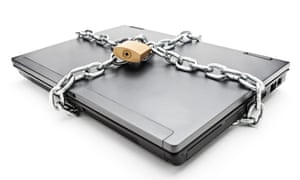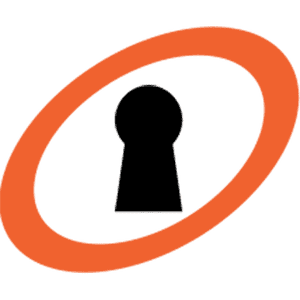DRK in The Guardian !!
https://www.theguardian.com/technology/2015/mar/06/tips-tricks-anonymous-privacy

How to achieve online lockdown. Photograph: LJSphotography / Alamy/Alamy
Nicholas Tufnell
Friday 6 March 2015 07.15 GM
Shares
12,408
1. SECURE WEBMAIL WITH EXTENSIONS
If you’re using a popular webmail service, such as Gmail or Yahoo Mail, and you don’t or can’t make the switch to a more secure service, then consider installing Mailvelope. Mailvelope is a browser extension for Google Chrome or Mozilla Firefox that brings OpenPGP encryption to your webmail service. Similar extensions exist, such as SecureGmail, which encrypts and decrypts emails you send through Gmail. Using this extension means the unencrypted text should never reach Google servers. Recipients will need to install the extension in order to decrypt and read the encrypted email.

2. INCOGNITO
This is perhaps one of the most basic privacy options that just about anyone can take advantage of. The top four most popular browsers - Google Chrome, InternetExplorer, Mozilla Firefox and Safari - have a private browsing mode, which can be found in their respective settings menus. With private browsing activated, your browser will not store cookies or internet history on your computer. This has very limited uses and is perhaps really only effective at hiding your browsing history from your significant other, siblings or parents. Private browsing does not securely hide your identity or browsing activities beyond your local machine as your IP address can still be tracked.

Photograph: Kimihiro Hoshino/AFP/Getty Images
3. DON’T USE SOCIAL MEDIA
The amount of personal data that social networking sites like Facebook, Google Plus and Twitter have harvested from their billions of users is shocking. Head to facebook.com/settings and click ‘Download a copy of your Facebook data’ and you might be surprised to see just how much information is on file. Everything from who you have poked, what events you have or have not attended and when and where you have logged into your account is logged and saved. Similar levels of data harvesting occurs on all major social media sites. This is the price you pay for using a ‘free’ service. The only sure-fire way to avoid giving up this information is to delete your accounts entirely. A word of warning, ‘deactivating’ your account is not the same as deleting it. Deactivating your account is sort of like putting it into hibernation - all your information is stored and can be re-activated if you have second thoughts. Always delete rather than deactivate an account if you wish to completely wipe it.

4. BLOCK AND MANAGE TRACKERS
A large amount of websites track and collect the browsing habits of the users that visit them. These trackers are invisible and most people aren’t aware that they’re being tracked. Ghostery is a free browser extension - available on all major web browsers - that will reveal these trackers, also known as web bugs. You can then decide which web bugs you’re comfortable with tracking you and which ones you’d like to block. In total, Ghostery keeps track of over 1,900 companies. Each company has a profile in the Ghostery Knowledge Library, allowing you to better understand who and why someone is keeping tabs on you and what action you would like to take.

5. ENCRYPTED EMAIL
Most of the well known and popular email services - Gmail, Hotmail, Yahoo Mail, Outlook - are not particularly privacy-friendly. For full Pretty Good Privacy (PGP) encrypted emails, consider signing up to a more secure provider. Hushmail is currently very popular, it provides a private email account with no ads, built-in encryption and unlimited email aliases. A limited free service is offered, with more features available for a monthly subscription fee. However, Hushmail is not above the law and in the past it has been forced to reveal user data to U.S. authorities following a court order. The company also logs user IP addresses. MyKolab is a similar service that has not revealed any user information in the past, however, they are also obliged to provide access to lawful interception requests so this still remains a possibility.

6. TEMPORARY EMAIL
Disposable Email Addresses (DEAs) are anonymous and temporary. They allow users to quickly create new email addresses as-and-when they’re needed, which can then be disposed of after use. This is particularly useful for avoiding spam when filling in forms on websites that require an email address to proceed. Keeping your real email address away from spammers is crucial to protecting your identity online and DEAs are a great solution. Popular providers of this service include Guerrilla Mail and Mailinator, although there are hundreds out there to choose from. Most DEAs are not particularly secure, so it is not advised to use these services to send sensitive information - rather, use them as a way to avoid giving away your own information in situations where you are obliged to do so.
7. VPN
Virtual Private Networks (VPNs) are one of the most effective ways to protect your privacy online. A VPN essentially hides your IP address - your unique online identifier - and runs all your online data via a secure and encrypted virtual tunnel, which can keep websites from tracking your online activity or even knowing which country you’re browsing from. These days, there are many VPNs to choose from. Hotspot Shield, TorGuard, CyberGhost and HideMyAss are some of the more popular ones that are currently available. Most of them require a small monthly subscription fee and they don’t all provide the same list of features, so it’s worth shopping around for a VPN that suits you.

8. TOR
Originally developed with the U.S. Navy in mind as a way to protect government communications, Tor is a network of “virtual tunnels that allows people and groups to improve their privacy and security on the Internet.” Tor’s anonymity network allows access to the ‘deep’ or ‘hidden’ web, where websites can be created anonymously and individuals can communicate privately with each other. When using the Tor browser - which can be downloaded for free from torproject.org - it is very difficult for websites or individuals to track your online activity and location. However, while Tor is quite effective at protecting your online anonymity, it can be slow, complicated and restricting. It’s also worth noting that while the network can and has been used for good, it has also been used for illicit purposes, such as selling drugs and distributing images of child abuse.
..............
https://www.theguardian.com/technology/2015/mar/06/tips-tricks-anonymous-privacy
‘hostile to privacy’. That’s pretty damning. If you’re worried about sharing your files through this system, there are a number of good alternatives out there which offer better privacy. Snowden himself recommends Spideroak, which describes itself as a zero-knowledge encrypted data backup, share, sync, access and storage service. You can use a limited version of this as part of their free trial, which can be found on their website. A fully featured subscription is available for $12 a month. However, if you’re just looking to quickly share small or large files anonymously for free, give OnionShare a go. It doesn’t have as many features as Spideroak, but it gets the job done.
15. CHANGE YOUR PHONE
Staying anonymous while using a smartphone can be tricky business. Many apps will want access to all sorts of settings on your device by default, which you may not be aware of and which you will have to manually manage with each new app installation and update. Furthermore, connecting to public networks while on the go is also a great way of potentially exposing your data to nefarious snoopers. While both Apple’s iOS 8 and Android’s Lollipop now have good encryption measures by default, there is another more extreme option in the form of The Blackphone. This is an ‘NSA-proof’ smartphone that claims to provide privacy features for texts, emails, web browsing and phone calls. Reviews so far have been mostly positive but at around £400, it’s not cheap.

16. USE A PASSWORD MANAGER
If you’ve got a password that can be easily guessed, cracked or stolen, because you have a bad memory for that sort of thing, then you can say goodbye to your anonymity. This is especially true if you use the same password for everything, or across multiple websites and/or services. A great way to improve your password security is to use a password manager, like LastPass. LastPass saves all of your passwords and only requires you to remember one master password, making multiple different passwords a lot less of a headache to manage, which in turn improves your online security and protects your anonymity.
17. SECURITY FOCUSED OPERATING SYSTEMS
There are security focused email service providers, security focused smartphones and security focused web browsers, but have you considered using a security focused operating system? Whonix is exactly that - an open source OS that focuses on anonymity, privacy and security. Based on the Tor network, Whonix is about as anonymous as an OS can get before it all becomes too inconvenient for normal use. Whonix runs in two parts, “one solely runs Tor and acts as a gateway… The other… is on a completely isolated network. Only connections through Tor are possible.” You can download it for free from whonix.org.

18. ANONYMOUS CURRENCY
Darkcoin is an open source digital cryptographic currency based on the Bitcoin software code. It is intended to be a more private version of Bitcoin (which typically prides itself on its transparency) and it claims to be the world’s first anonymous cryptocurrency. Finding merchants that accept Darkcoin can be tough (Darkcoin has its own merchant directory which you can browse here http://tinyurl.com/qzo398u) but when you do, your financial transactions are well hidden and, in theory, entirely anonymous.
Read more:
https://www.theguardian.com/technology/2015/mar/06/tips-tricks-anonymous-privacy
https://www.theguardian.com/technology/2015/mar/06/tips-tricks-anonymous-privacy

How to achieve online lockdown. Photograph: LJSphotography / Alamy/Alamy
Nicholas Tufnell
Friday 6 March 2015 07.15 GM
Shares
12,408
1. SECURE WEBMAIL WITH EXTENSIONS
If you’re using a popular webmail service, such as Gmail or Yahoo Mail, and you don’t or can’t make the switch to a more secure service, then consider installing Mailvelope. Mailvelope is a browser extension for Google Chrome or Mozilla Firefox that brings OpenPGP encryption to your webmail service. Similar extensions exist, such as SecureGmail, which encrypts and decrypts emails you send through Gmail. Using this extension means the unencrypted text should never reach Google servers. Recipients will need to install the extension in order to decrypt and read the encrypted email.

2. INCOGNITO
This is perhaps one of the most basic privacy options that just about anyone can take advantage of. The top four most popular browsers - Google Chrome, InternetExplorer, Mozilla Firefox and Safari - have a private browsing mode, which can be found in their respective settings menus. With private browsing activated, your browser will not store cookies or internet history on your computer. This has very limited uses and is perhaps really only effective at hiding your browsing history from your significant other, siblings or parents. Private browsing does not securely hide your identity or browsing activities beyond your local machine as your IP address can still be tracked.

Photograph: Kimihiro Hoshino/AFP/Getty Images
3. DON’T USE SOCIAL MEDIA
The amount of personal data that social networking sites like Facebook, Google Plus and Twitter have harvested from their billions of users is shocking. Head to facebook.com/settings and click ‘Download a copy of your Facebook data’ and you might be surprised to see just how much information is on file. Everything from who you have poked, what events you have or have not attended and when and where you have logged into your account is logged and saved. Similar levels of data harvesting occurs on all major social media sites. This is the price you pay for using a ‘free’ service. The only sure-fire way to avoid giving up this information is to delete your accounts entirely. A word of warning, ‘deactivating’ your account is not the same as deleting it. Deactivating your account is sort of like putting it into hibernation - all your information is stored and can be re-activated if you have second thoughts. Always delete rather than deactivate an account if you wish to completely wipe it.

4. BLOCK AND MANAGE TRACKERS
A large amount of websites track and collect the browsing habits of the users that visit them. These trackers are invisible and most people aren’t aware that they’re being tracked. Ghostery is a free browser extension - available on all major web browsers - that will reveal these trackers, also known as web bugs. You can then decide which web bugs you’re comfortable with tracking you and which ones you’d like to block. In total, Ghostery keeps track of over 1,900 companies. Each company has a profile in the Ghostery Knowledge Library, allowing you to better understand who and why someone is keeping tabs on you and what action you would like to take.

5. ENCRYPTED EMAIL
Most of the well known and popular email services - Gmail, Hotmail, Yahoo Mail, Outlook - are not particularly privacy-friendly. For full Pretty Good Privacy (PGP) encrypted emails, consider signing up to a more secure provider. Hushmail is currently very popular, it provides a private email account with no ads, built-in encryption and unlimited email aliases. A limited free service is offered, with more features available for a monthly subscription fee. However, Hushmail is not above the law and in the past it has been forced to reveal user data to U.S. authorities following a court order. The company also logs user IP addresses. MyKolab is a similar service that has not revealed any user information in the past, however, they are also obliged to provide access to lawful interception requests so this still remains a possibility.

6. TEMPORARY EMAIL
Disposable Email Addresses (DEAs) are anonymous and temporary. They allow users to quickly create new email addresses as-and-when they’re needed, which can then be disposed of after use. This is particularly useful for avoiding spam when filling in forms on websites that require an email address to proceed. Keeping your real email address away from spammers is crucial to protecting your identity online and DEAs are a great solution. Popular providers of this service include Guerrilla Mail and Mailinator, although there are hundreds out there to choose from. Most DEAs are not particularly secure, so it is not advised to use these services to send sensitive information - rather, use them as a way to avoid giving away your own information in situations where you are obliged to do so.
7. VPN
Virtual Private Networks (VPNs) are one of the most effective ways to protect your privacy online. A VPN essentially hides your IP address - your unique online identifier - and runs all your online data via a secure and encrypted virtual tunnel, which can keep websites from tracking your online activity or even knowing which country you’re browsing from. These days, there are many VPNs to choose from. Hotspot Shield, TorGuard, CyberGhost and HideMyAss are some of the more popular ones that are currently available. Most of them require a small monthly subscription fee and they don’t all provide the same list of features, so it’s worth shopping around for a VPN that suits you.

8. TOR
Originally developed with the U.S. Navy in mind as a way to protect government communications, Tor is a network of “virtual tunnels that allows people and groups to improve their privacy and security on the Internet.” Tor’s anonymity network allows access to the ‘deep’ or ‘hidden’ web, where websites can be created anonymously and individuals can communicate privately with each other. When using the Tor browser - which can be downloaded for free from torproject.org - it is very difficult for websites or individuals to track your online activity and location. However, while Tor is quite effective at protecting your online anonymity, it can be slow, complicated and restricting. It’s also worth noting that while the network can and has been used for good, it has also been used for illicit purposes, such as selling drugs and distributing images of child abuse.
..............
https://www.theguardian.com/technology/2015/mar/06/tips-tricks-anonymous-privacy
‘hostile to privacy’. That’s pretty damning. If you’re worried about sharing your files through this system, there are a number of good alternatives out there which offer better privacy. Snowden himself recommends Spideroak, which describes itself as a zero-knowledge encrypted data backup, share, sync, access and storage service. You can use a limited version of this as part of their free trial, which can be found on their website. A fully featured subscription is available for $12 a month. However, if you’re just looking to quickly share small or large files anonymously for free, give OnionShare a go. It doesn’t have as many features as Spideroak, but it gets the job done.
15. CHANGE YOUR PHONE
Staying anonymous while using a smartphone can be tricky business. Many apps will want access to all sorts of settings on your device by default, which you may not be aware of and which you will have to manually manage with each new app installation and update. Furthermore, connecting to public networks while on the go is also a great way of potentially exposing your data to nefarious snoopers. While both Apple’s iOS 8 and Android’s Lollipop now have good encryption measures by default, there is another more extreme option in the form of The Blackphone. This is an ‘NSA-proof’ smartphone that claims to provide privacy features for texts, emails, web browsing and phone calls. Reviews so far have been mostly positive but at around £400, it’s not cheap.

16. USE A PASSWORD MANAGER
If you’ve got a password that can be easily guessed, cracked or stolen, because you have a bad memory for that sort of thing, then you can say goodbye to your anonymity. This is especially true if you use the same password for everything, or across multiple websites and/or services. A great way to improve your password security is to use a password manager, like LastPass. LastPass saves all of your passwords and only requires you to remember one master password, making multiple different passwords a lot less of a headache to manage, which in turn improves your online security and protects your anonymity.
17. SECURITY FOCUSED OPERATING SYSTEMS
There are security focused email service providers, security focused smartphones and security focused web browsers, but have you considered using a security focused operating system? Whonix is exactly that - an open source OS that focuses on anonymity, privacy and security. Based on the Tor network, Whonix is about as anonymous as an OS can get before it all becomes too inconvenient for normal use. Whonix runs in two parts, “one solely runs Tor and acts as a gateway… The other… is on a completely isolated network. Only connections through Tor are possible.” You can download it for free from whonix.org.

18. ANONYMOUS CURRENCY
Darkcoin is an open source digital cryptographic currency based on the Bitcoin software code. It is intended to be a more private version of Bitcoin (which typically prides itself on its transparency) and it claims to be the world’s first anonymous cryptocurrency. Finding merchants that accept Darkcoin can be tough (Darkcoin has its own merchant directory which you can browse here http://tinyurl.com/qzo398u) but when you do, your financial transactions are well hidden and, in theory, entirely anonymous.
Read more:
https://www.theguardian.com/technology/2015/mar/06/tips-tricks-anonymous-privacy
